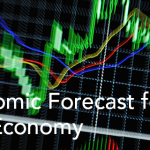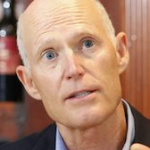Rick Scott tariffs have emerged as a contentious topic in the ongoing debate over U.S. trade policy, with supporters arguing they are essential for leveling the playing field for American workers. In a recent discussion, Scott defended the significant tariffs imposed, particularly those affecting China, asserting that they aim to protect U.S. interests and help reduce the trade deficit. Despite arguing for these measures, the repercussions of such tariffs may ripple through the economy, leading to increased prices for consumers and potential disruptions in the job market. Critics within the economic community, including prominent figures like Jason Furman, have raised concerns about the overarching impact on the economy, predicting that these tariffs could backfire and stifle growth. As the discussion surrounding tariffs continues, it is evident that their effects will be felt not only by American manufacturers but also by everyday workers grappling with changing market conditions.
In the realm of international trade relations, the debate surrounding protective duties on foreign imports has reached a fever pitch, especially as lawmakers like Senator Scott champion tariffs as a means to safeguard domestic employment. These levies, particularly those focused on trade partners like China, serve as a focal point for discussions about reforming U.S. trade strategies aimed at rectifying long-standing trade imbalances. The notion of imposing such tariffs has invoked mixed reactions, with advocates believing they could bolster American manufacturing while critics warn of potential inflationary pressures and economic downturns. As the global economy evolves, the ramifications of these tariffs will undoubtedly influence U.S. industry and citizen welfare, raising questions about the best course of action for sustainable growth. Ultimately, the choice between protectionism and free trade will continue to shape the dialogue on how to ensure the prosperity of American labor.
The Economic Impact of Tariffs on American Workers
Senator Rick Scott argues that the implementation of tariffs is essential for bolstering the position of American workers in an increasingly competitive global market. By levying these tariffs, the U.S. aims to press foreign nations to drop their trade barriers, promoting an environment where American goods can be sold more freely abroad. This strategy echoes a strong sentiment among proponents of tariffs who believe that domestic industries would thrive as a result, thus positively impacting job creation and wages in the U.S. economy.
However, critics of the tariff policy, including some economists, warn that such measures could lead to unintended negative consequences, including an increase in consumer prices and a potential slowdown in economic growth. As tariffs escalate, the trade deficit might increase instead of decrease, putting additional pressure on American workers rather than protecting their interests. The debate continues as to whether the long-term benefits of tariffs will outweigh the immediate economic disruptions they may cause.
Rick Scott’s Perspective on U.S. Trade Policy
In discussions surrounding U.S. trade policy, Senator Rick Scott positions himself firmly in support of former President Trump’s approach to tariffs. Scott reflects on the belief that tariffs could effectively eliminate competitive disadvantages faced by American workers, particularly highlighting the imbalance created by countries like China, which impose high tariffs on U.S. goods. He voices a strong sentiment that protectionist measures are essential for safeguarding the American economy, particularly in light of rising concerns over China’s economic influence.
Scott’s assertion that ‘the only way we don’t go to war with China is if their economy is demolished’ underscores his aggressive stance towards trade practices he perceives as unfair. He argues that enforced tariffs should not only aim to correct trade imbalances but also serve as leverage to negotiate better terms for U.S. manufacturers. This perspective fosters a contentious dialogue within economic circles about the best path forward for U.S. trade policy, as many economists express concern about the long-term sustainability of such strategies.
China Tariffs and Their Effects on Trade Relations
The tariffs imposed on China have reached an unprecedented level of 145 percent, significantly impacting trade relations between the two nations. Senator Scott believes these high tariffs are necessary to counteract the challenges posed by Chinese economic practices, which he argues are detrimental to American interests. This escalation in tariff rates has not only triggered retaliatory measures from China but also contributed to heightened tensions in international trade, complicating the economic landscape for American businesses attempting to navigate these challenges.
The implications of high tariffs against China extend beyond mere economics; they influence diplomatic relations and global economic stability. Many industry leaders express concern about the uncertainty that tariffs bring to trade negotiations, which could ultimately deter foreign investment and hinder growth. As Scott continues to advocate for stringent tariff policies aimed at China, it becomes crucial to consider the broader consequences on U.S. trade deficits and relationships with other trading partners.
Navigating the Trade Deficit Amid Tariff Policies
Addressing the ongoing trade deficit remains a critical aspect of the debate surrounding tariffs. Senator Rick Scott champions the idea that tariffs can be a tool for reducing the trade deficit by discouraging imports while encouraging domestic production of goods. He argues that by leveling the playing field, American workers would gain the opportunity to compete more fairly, thus promoting local manufacturing and decreasing reliance on foreign products.
Yet, the effectiveness of tariffs in reducing trade deficits is widely contested. Critics highlight that while tariffs may temporarily shelter specific industries, they could lead to increased prices for consumers and a potential downturn in economic performance. The complexities of global trade require a multifaceted approach, and many economists assert that solely relying on tariffs may not solve the underlying issues of the trade deficit.
Future Prospects of Tariffs in American Economic Policy
As the Biden administration reassesses U.S. economic strategies, the future role of tariffs in American economic policy remains a pivotal question. Senator Rick Scott’s advocacy for tariffs reflects a continued commitment among some lawmakers to prioritize protection for American workers amid a shifting global landscape. Proponents argue that sustaining a robust tariff policy could support domestic industries and create a more favorable economic environment for American manufacturers.
Conversely, growing calls for trade negotiations instead of tariffs suggest a potential shift in U.S. trade policy landscape. The ability to develop strategic partnerships without the constraints of tariffs could foster more sustainable economic growth and improve international relations. Evaluating the balance between protectionism and negotiation will be fundamental in shaping effective trade policies that benefit both workers and the economy at large.
Inflation Concerns Linked to Tariff Strategies
Inflation concerns are paramount in discussions about tariffs, particularly as they could lead to increased costs for consumers. Senator Rick Scott remains cautious yet optimistic, suggesting that balancing the budget might be a more effective strategy for controlling inflation rather than solely focusing on tariff rates. As tariffs on multiple countries, including China, achieve unprecedented heights, the fear is that price increases on imported goods may transfer to consumers, potentially stifling economic recovery.
Economic experts continue to debate the long-term effects of tariffs on inflation. While some believe they could spark inflationary pressures, others argue that the intended economic restructuring might ultimately lead to lower prices domestically due to increased competition. The uncertainty surrounding these outcomes highlights the need for careful monitoring of tariff policies and their broader implications on inflation rates and consumer behavior.
Tariff Policy and Its Connection to National Debt
Senator Rick Scott’s comments on national debt intertwine with his views on tariffs, suggesting that prudent fiscal management is essential for the nation’s economic future. Scott advocates for a balanced budget as a necessary step in confronting the projected $20 trillion national debt. He posits that reducing spending could alleviate some financial strain and in turn support a healthier economic environment for American workers affected by tariff policies.
The relationship between tariffs and national debt is complex; while tariffs can potentially enhance domestic production and revenue, they may also place an inflated burden on consumers and slow overall economic growth. As the national debt continues to rise, finding a balance between enforcing tariffs and pursuing fiscal responsibility will be a critical issue for policymakers aiming to achieve economic stability.
The Role of Tariffs in Strengthening U.S. Manufacturing
Tariffs are often positioned as a mechanism to revitalize U.S. manufacturing, a sector that many believe is crucial for economic independence and job creation. Senator Rick Scott emphasizes that by imposing tariffs, the U.S. can help safeguard American manufacturing jobs against global competition, particularly from countries that practice dumping or subsidize their industries. This protective approach is seen as a way to encourage investment in domestic production.
Nonetheless, the manufacturing sector faces challenges beyond tariffs, including supply chain disruptions and technological advancements that require adaptation. It is vital for U.S. policymakers to provide support and resources to manufacturers to ensure their competitiveness, whether through tariffs or innovative policies. The future of American manufacturing will depend on a holistic strategy that monitors global trends while prioritizing homegrown industries.
Trade Policy Evolution Amid Changing Global Dynamics
As global dynamics shift, U.S. trade policy faces constant evolution, reflecting the changing nature of international trade relationships. Senator Rick Scott’s support for tariffs echoes a broader trend among some politicians who believe that protective measures can help shield the American economy from foreign competition. This focus on tariffs seeks not only to reshape bilateral trade agreements but also to reinforce American economic interests in a rapidly changing world.
On the other hand, the context of increasing globalization prompts discussions on whether protectionist measures, like tariffs, will be effective in the long term. As nations strive to maintain competitive positions, it’s essential for U.S. trade policy to adapt and remain flexible. Finding a balance between protective tariffs and strategic alliances will be crucial for ensuring sustainable economic growth and maintaining the U.S. position in global markets.
Frequently Asked Questions
How do Rick Scott tariffs affect the U.S. trade policy?
Rick Scott’s tariffs are part of a broader attempt to reshape U.S. trade policy by pressuring other nations, particularly China, to lower their tariffs on American products. The goal is to create a more level playing field for American workers, enabling them to sell more goods overseas without the burden of high tariffs.
What is the impact of Rick Scott tariffs on American workers?
Senator Rick Scott argues that tariffs will ultimately benefit American workers by allowing them to compete more effectively in the global market. By reducing barriers imposed by other countries, Scott believes U.S. workers will increase their sales and productivity, helping to close the trade deficit.
What are the economic implications of Rick Scott tariffs on the trade deficit?
Rick Scott has suggested that tariffs could help close the trade deficit by encouraging other nations to lower their tariffs, thus benefiting U.S. manufacturers. However, the impact on the trade deficit remains debated among economists, some of whom believe these tariffs could lead to economic slowdown rather than improvement.
How do Rick Scott tariffs specifically target China?
Rick Scott’s tariffs impose a significantly higher rate on China—145% compared to 10% on most other nations. This aggressive stance intends to pressure China to eliminate its trade barriers, reflecting Scott’s belief that China poses a serious economic and geopolitical threat to the U.S.
Will Rick Scott tariffs lead to inflation?
While Rick Scott has expressed uncertainty about the specific impact of tariffs on inflation, he suggests that maintaining a balanced budget is crucial for controlling inflation in the long term. The interplay between tariffs and inflation remains a complex issue among policymakers and economists.
What criticisms do economists have regarding Rick Scott tariffs?
Many economists, including those like Jason Furman, argue that while Rick Scott supports tariffs as a means to benefit American workers, such policies may backfire and harm the overall U.S. economy. Critics warn that tariffs can lead to increased prices for consumers and potential job losses in affected industries.
What strategies does Rick Scott suggest for improving trade relations?
Rick Scott advocates for reducing trade barriers and engaging in negotiations with trading partners rather than imposing tariffs unilaterally. He emphasizes that simplifying trade relations could be more beneficial for American workers and the economy.
How do Rick Scott tariffs relate to the global economic situation?
Rick Scott’s tariffs have contributed to volatility in global markets and are seen as part of a larger trend in U.S. trade policy that aims to confront economic challenges posed by countries like China. This has far-reaching implications for international trade dynamics and the global economy.
| Key Point | Details |
|---|---|
| Rick Scott’s Support for Tariffs | Senator Rick Scott argues that tariffs will protect U.S. workers and level the playing field against foreign competitors. |
| Criticism of China’s Trade Practices | Scott believes that China poses a significant threat to the U.S. economy and advocates for reduced economic engagement with China. |
| Impact on U.S. Economy | While tariffs are intended to benefit American manufacturers, some economists warn they could harm the overall U.S. economy. |
| Tariff Rates | The U.S. government has imposed a 10% tariff on most nations and a staggering 145% on Chinese imports. |
| China’s Response to Tariffs | In retaliation, China has levied a 125% tariff on U.S. imports. |
Summary
Rick Scott tariffs are a centerpiece of Senator Rick Scott’s economic philosophy, aiming to bolster American workers by imposing strict tariffs primarily against China and other nations. During discussions about U.S. trade policy, Scott defended these tariffs as a necessary measure to counter foreign competition and protect the interests of American industries. While he sees potential benefits for U.S. manufacturers, the economic consensus remains divided, raising questions about long-term effects on inflation and overall economic health. As debates around Scott’s tariffs continue, the implications for both U.S. workers and international trade dynamics remain critical.







